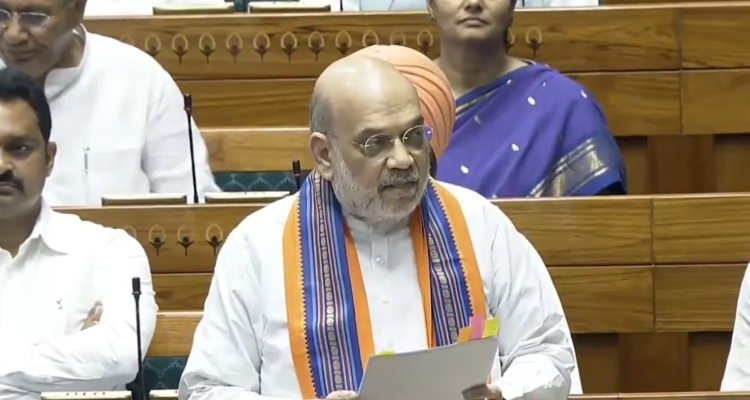
Opposition Slams Amit Shah’s Bills to Bar Arrested Ministers from Office
New Delhi: High drama unfolded in the Lok Sabha on Wednesday after Union Home Minister Amit Shah introduced three landmark bills that could change the rules of political accountability in India. The proposed laws seek to automatically remove the Prime Minister, Chief Ministers, or ministers from office if they remain in custody for 30 consecutive days on serious criminal charges.
The announcement triggered uproar in the House, with opposition MPs storming the well, shouting slogans, tearing up bill copies, and even hurling paper missiles towards the Treasury benches.
What the Bills Say
The government has tabled:
- The Constitution (130th Amendment) Bill, 2025 – amending Articles 75, 164, and 239AA to cover the PM, Union Ministers, Chief Ministers, and State Ministers.
- The Government of Union Territories (Amendment) Bill, 2025 – altering Section 45 of the 1963 Act.
- The Jammu & Kashmir Reorganisation (Amendment) Bill, 2025 – changing Section 54 of the 2019 Act.
Together, they mandate that any leader arrested on charges punishable with at least five years in prison, and held for more than 30 days, must vacate office. Reappointment is possible after release.
Government’s Justification
Shah argued the measures would protect democracy and strengthen good governance, ensuring that “governments are not run from jail.” He cited recent controversies involving Delhi Chief Minister Arvind Kejriwal, who remained in office during his ED custody in the excise policy case, and Tamil Nadu minister V. Senthil Balaji, who stayed in post for over 240 days while in prison.
At present, leaders can only be disqualified after conviction, not during prolonged detention — a gap the government says undermines public trust.
Opposition’s Fury
The Opposition blasted the bills as “draconian” and “unconstitutional,” warning they could be weaponised against political rivals. Congress MP Manish Tewari accused the government of “destroying the basic structure of the Constitution”, while AIMIM chief Asaduddin Owaisi called it a “direct assault on democracy.”
Priyanka Gandhi Vadra likened the move to eroding the presumption of innocence, arguing that the Centre is attempting to target non-BJP state governments through politically motivated arrests.
What’s Next
Amid the uproar, Amit Shah agreed to send the bills to a Joint Parliamentary Committee (JPC) for deeper examination. The panel is expected to submit its report ahead of the Winter Session.
The Big Question
The proposed legislation has set off a fierce national debate. Supporters call it a long overdue step towards accountability, while critics see it as a dangerous tool to topple opposition governments.
For now, the fate of these bills will depend on the JPC — and the political storm is only beginning.




